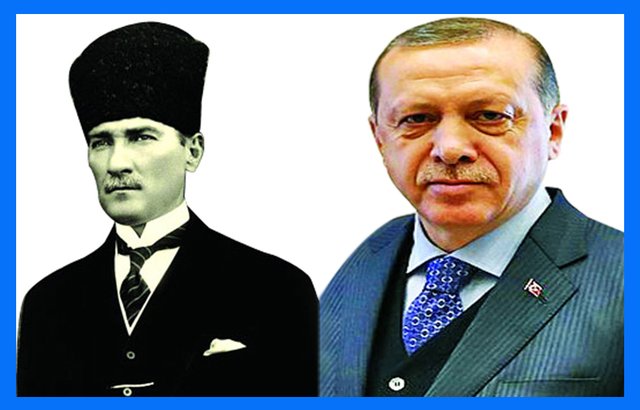Osmani Empire, Modern Turkey was established in the confluence of Greece and the eastern border with Iran on Asia and Europe, to form a strong country and nation.

After the fall of the traditional Osmani empire, modern Turkey was established in the confluence of Greece and the eastern border with Iran on Asia and Europe, to form a strong country and nation.
Since 2002, the group believed to be in Islamic power led by Rajab Tayeb Erdogan is in Turkish power. After the establishment of Modern Turkey in 1923, under the supervision of the current President Erdogan, some major changes have been made in the country. But after half a decade of power, President Erdogan and his team faced big tests for the first time in Sunday's election.
After the establishment of the 1299, the end of the first world war survived the historic Osmani empire. For more than 600 years, this empire survived on the earth with most of South-eastern Europe, West Asia and most of North Africa. Modern Saudi Arabia was also under this empire, with all the sacred buildings of Islam. But in the end, the Osmani empire's empire was gradually decaying, and in the beginning of the twentieth century, after the defeat of the first world war for Germany and the defeat of the empire, the empire was finally destroyed. After the war of liberation, Turkish military officials, including Mustafa Kemal Ataturk, were able to establish the Republic of Turkey through a declaration in 1923.
After Erdogan came to power, Turkey again focuses on spreading the influence of the whole Middle East, Balkan states and the Osmanian era, including Iraq and Syria. Kamal Ataturk, the first Turkish President of modern Turkey, was in charge until his death in 1938. He guided Turkey to the state of western customs and values, and established secularism as one of the main elements of the country. Then in 1946 multiparty democracy was started in Turkey by the success of Kamal Atatürk's successor, Ismat Inunu. However, Turkey was neutral in World War II. Then in 1952, Turkey joined the NATO alliance with Greece. Critics accused Erdoğan of taking the country forward towards Islamization and for the change in Western customs. But as a member of the NATO, while addressing the secular state, his country insists that his country is committed, the Turkish President said. Turkey's powerful military forces overthrew the country's government in the 1960s, 1971 and 1980s.
After coming to power, Erdogan restricted the country's military activities. Initiatives were taken to control them in order to reduce the chances of interference in the politics of the army. But in July 2016, some stray army coups tried unsuccessfully. However, one-time ally Fathahullah Gulen complained about the coup, saying Erdogan. However, Gulen, who lives in the United States, denied this accusation. Erdogan then issued emergency status in Turkey and conducted an accuracy campaign to arrest approximately 55,000 people. Emergency issued in 2016 still exists and Erdogan and other opposition leaders pledged that emergency will be lifted after the election. Turkey has so far provided shelter to nearly 35 million Syrian refugees in their own land, most of them in the south-east of the country and took shelter in Istanbul. In addition, the country has taken refuge in Iraq and Afghanistan refugees. Apart from this, Turkey has also provided Turkish passports to hundreds of Syrian refugees. Kurdish tribes of Turkey's largest small ethnic group. The Kurdish Kurdistan Workers Party (PKK) declared a revolt in 1984 and it killed nearly a hundred thousand people, claiming that the Kurdish problem is not being solved. Immediately after taking office in 2003, Erdogan gave the Kurds unprecedented access and started dialogue with them. Although later the arms break failed and the clash continued. There is no progress in this regard till now.
Source of shared Link
